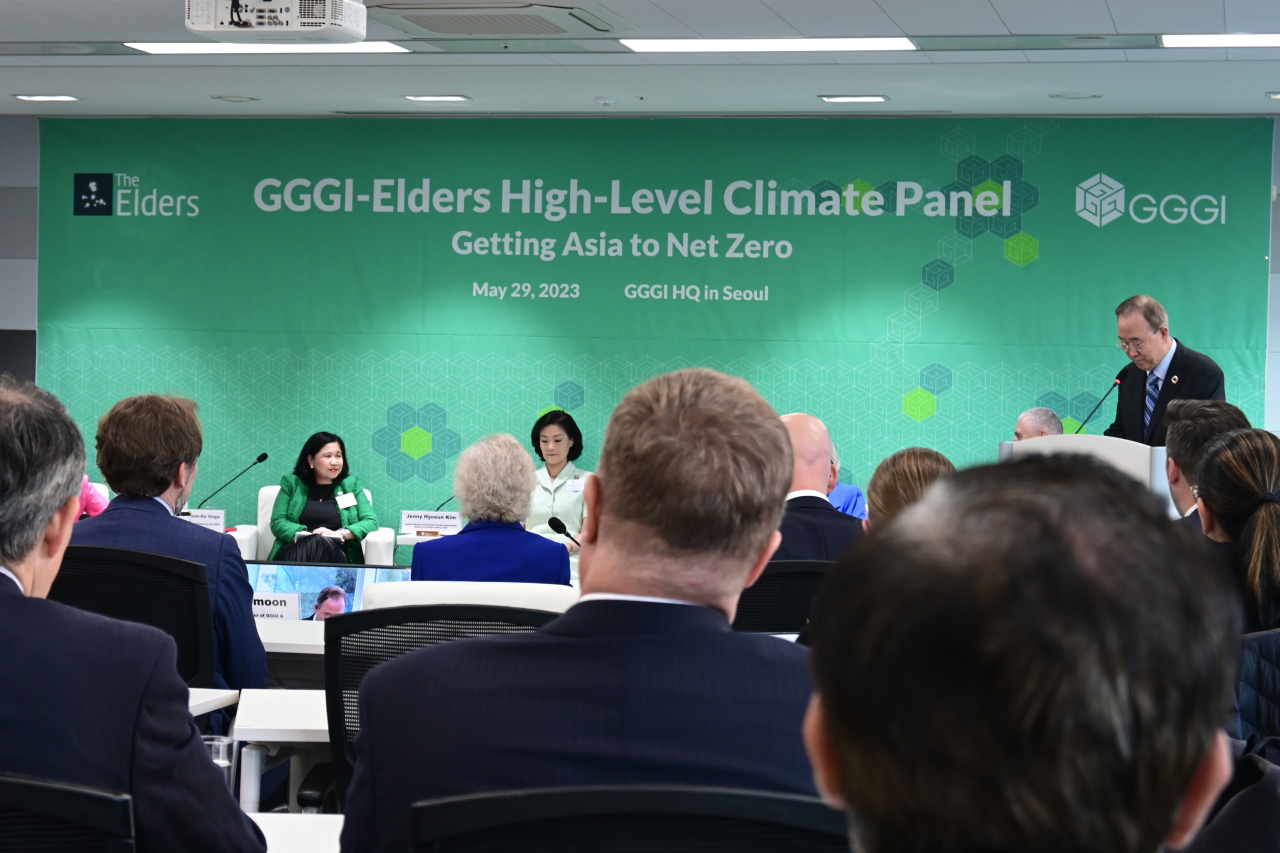
Leaders and experts discussed a path to net zero for Asia at a forum co-hosted by the Global Green Growth Institute and the Elders on Monday.
"Reaching net zero by 2050 could boost Asia’s gross domestic product by up to 6 percent, create 36 million new jobs by 2030, and improve Asia’s trade balance by hundreds of billions of dollars as a result of declining fossil fuels in the world," said former United Nations Secretary-General Ban Ki-moon, who serves as president and chair of GGGI, citing recent research reports. Ban also serves as deputy chair of the Elders, an independent group of global leaders established by former South African President Nelson Mandela.
Asia, which accounts for more than half of the world’s population and carbon emissions, will be absolutely critical for the technically looming climate crisis, according to Ban.
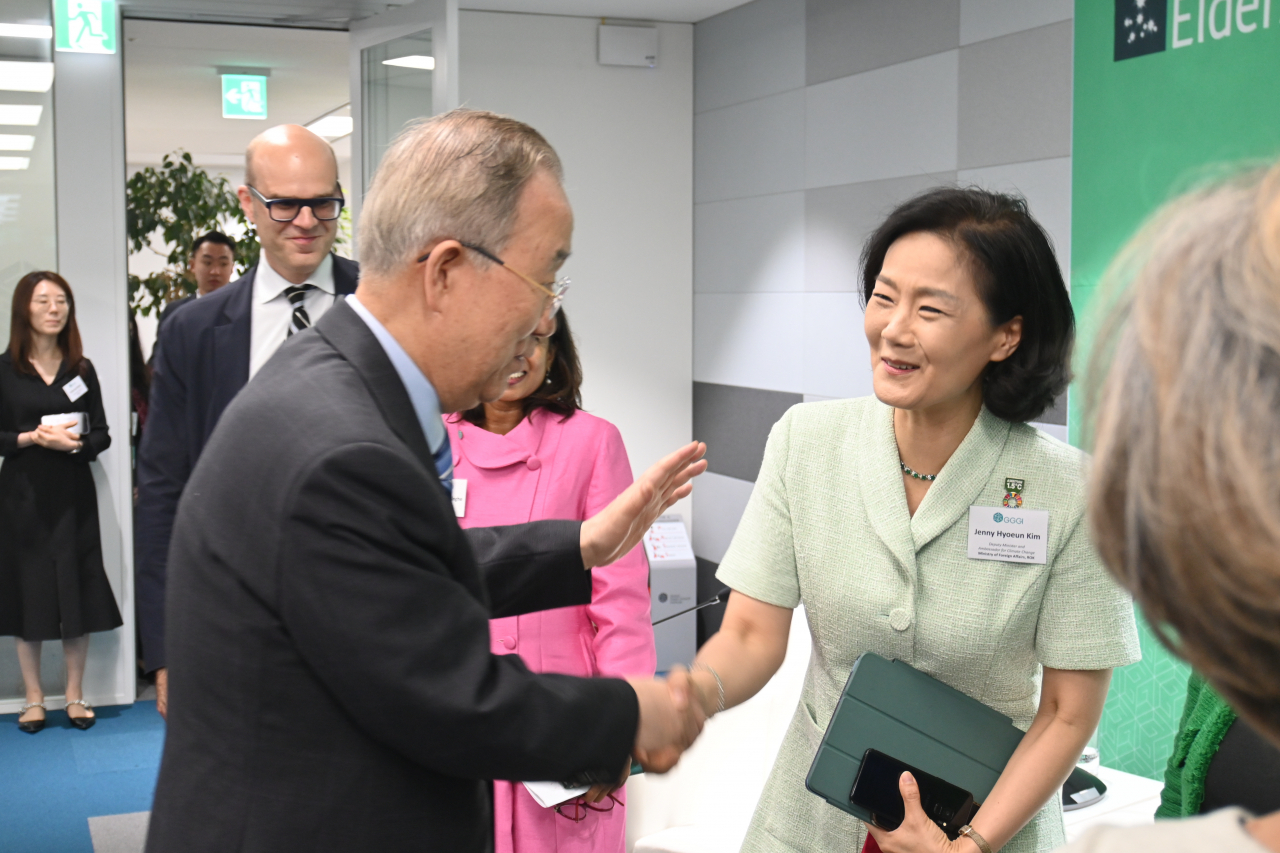
Underscoring the urgency of the situation and pusing for collaboration between global leaders amid geopolitical tensions and armed conflicts, Ban urged world leaders to respond to the climate crisis.
"This year, with the (Group of 20) in India and COP28 in the United Arab Emirates, Asia has a real opportunity to build momentum for climate action," Ban said.
Governments must work to accelerate the green transition, which includes efforts to finance global damage and scaled-up mobilization of climate finance, he added.
"Let us work together so that history will reflect that 2023 was the year that Asia made major strides to end the fossil fuel era and set itself on the path to net zero," Ban urged.
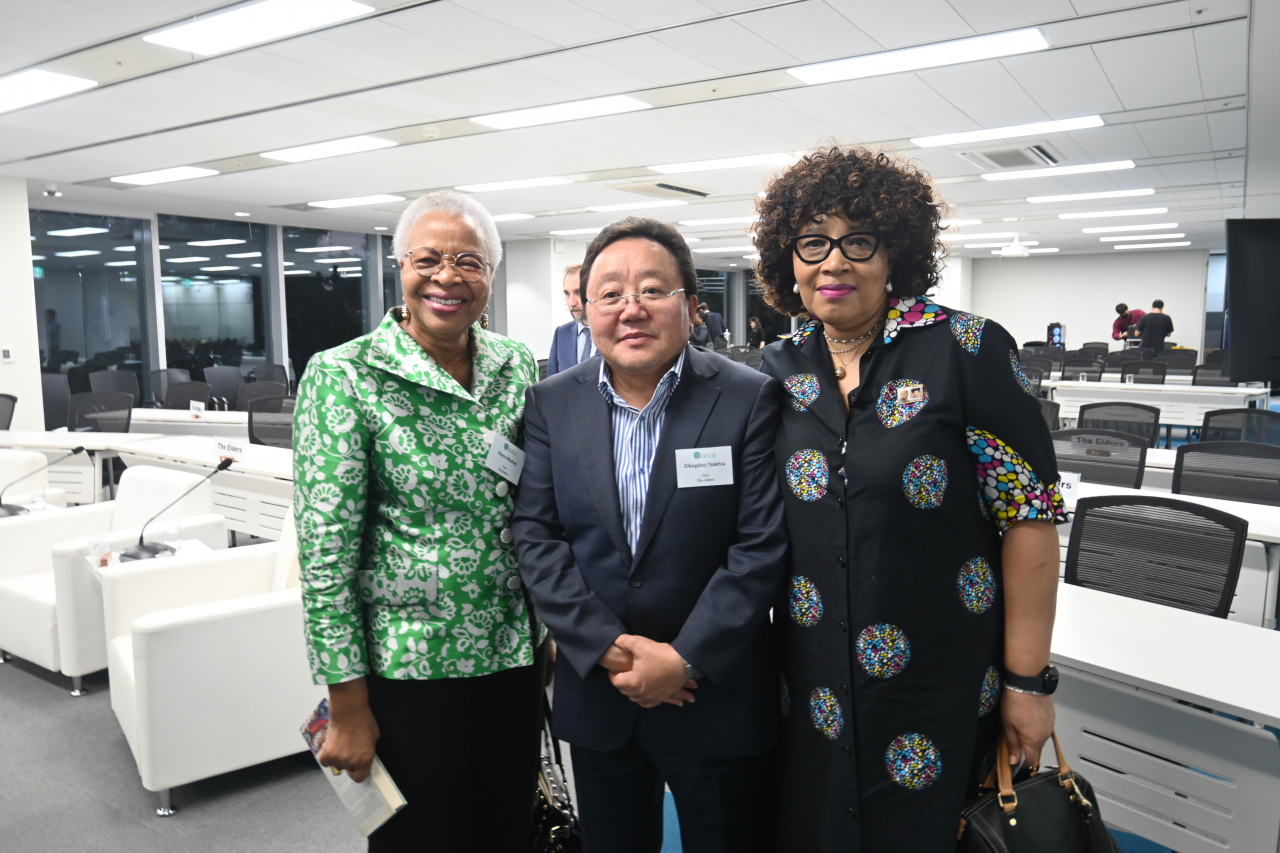
Kim Hyo-eun, deputy minister and ambassador for climate change at the Ministry of Foreign Affairs, noted Korea’s commitments to a net-zero transition in the Asia-Pacific region as a global pivotal state as a panelist in the event.
Kim said Korea will strengthen regional cooperation for green technology development and innovation and other support to developing countries, including increasing its green official development assistance.
She stressed President Yoon Suk Yeol's prioritizing of climate action in the country’s Indo-Pacific strategy and Korea’s role as a pivotal player on the global stage.
She also referred to South Korea's decision to join the Climate Club led by Germany and other Group of Seven members to decarbonize key industrial sectors and work for a green transition in the most difficult areas.
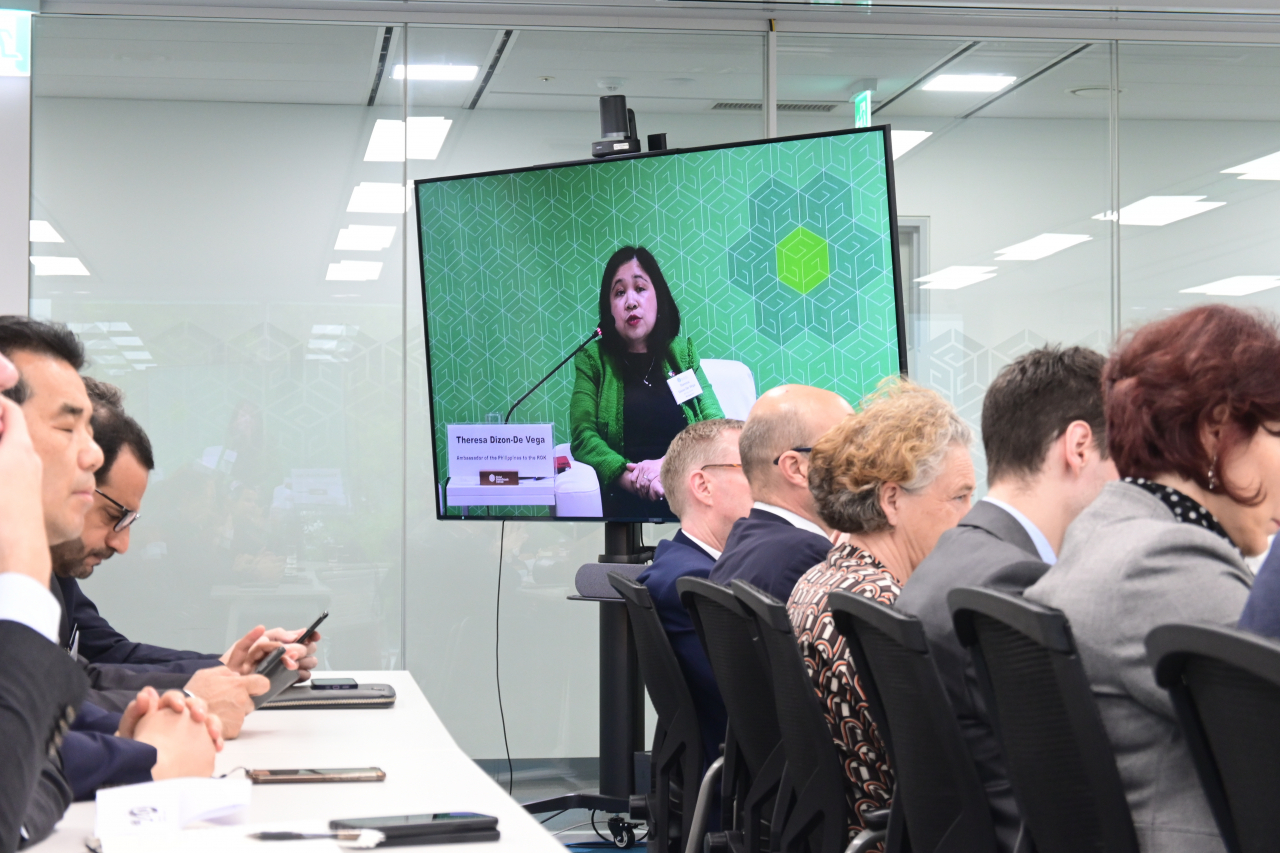
Theresa Dizon-De Vega, Philippine ambassador to Korea, underlined her country's building blocks and consciousness for the transition to a net-zero plan.
She noted the delicate situation and huge demand for power to sustain growth in the Philippines, Vietnam and Indonesia, which had strong economic growth in the last 12 months.
"It pushes us toward more dependence on fossil fuels such as coal, and many of the sectors are scrambling to get renewables," she said. The ambassador highlighted the Philippines' latest national renewable energy plan, which sets out to power the grid with at least a 35 percent share of renewable energy by 2030 and 50 percent by 2040.
Vega also urged international partners to unlock green investment potential for the Philippines and middle-income countries.
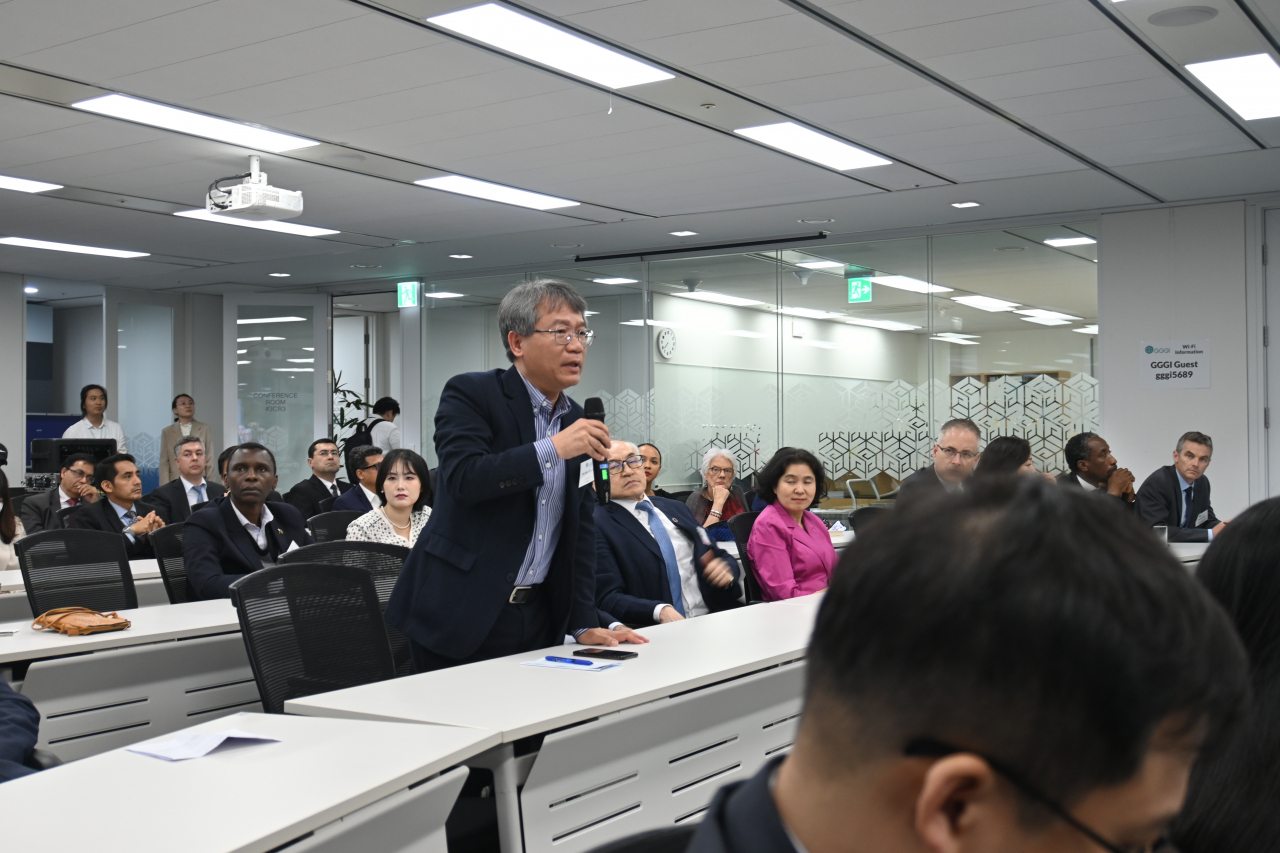
Sharing the experiences of Vietnam during the interaction session, Vietnamese Ambassador to Korea Nguyen Vu Tung cited a master plan for electricity to achieve net zero by 2050, stressing the significant progress made thanks to efforts from various industries, the government and Vietnamese society.
Vietnam announced that it would achieve net zero by 2050 at COP26.
Tung emphasized collective awareness and a pangovernmental approach to respond to climate change.
He also referred to his recent communications with Korean firms Hanhwa and Samsung regarding a specific master plan over the last few years as a positive signal for private companies.
"(The companies) know where they can invest," said Tung.
Tung also echoed Vega's remarks on unlocking investment potential in climate action.
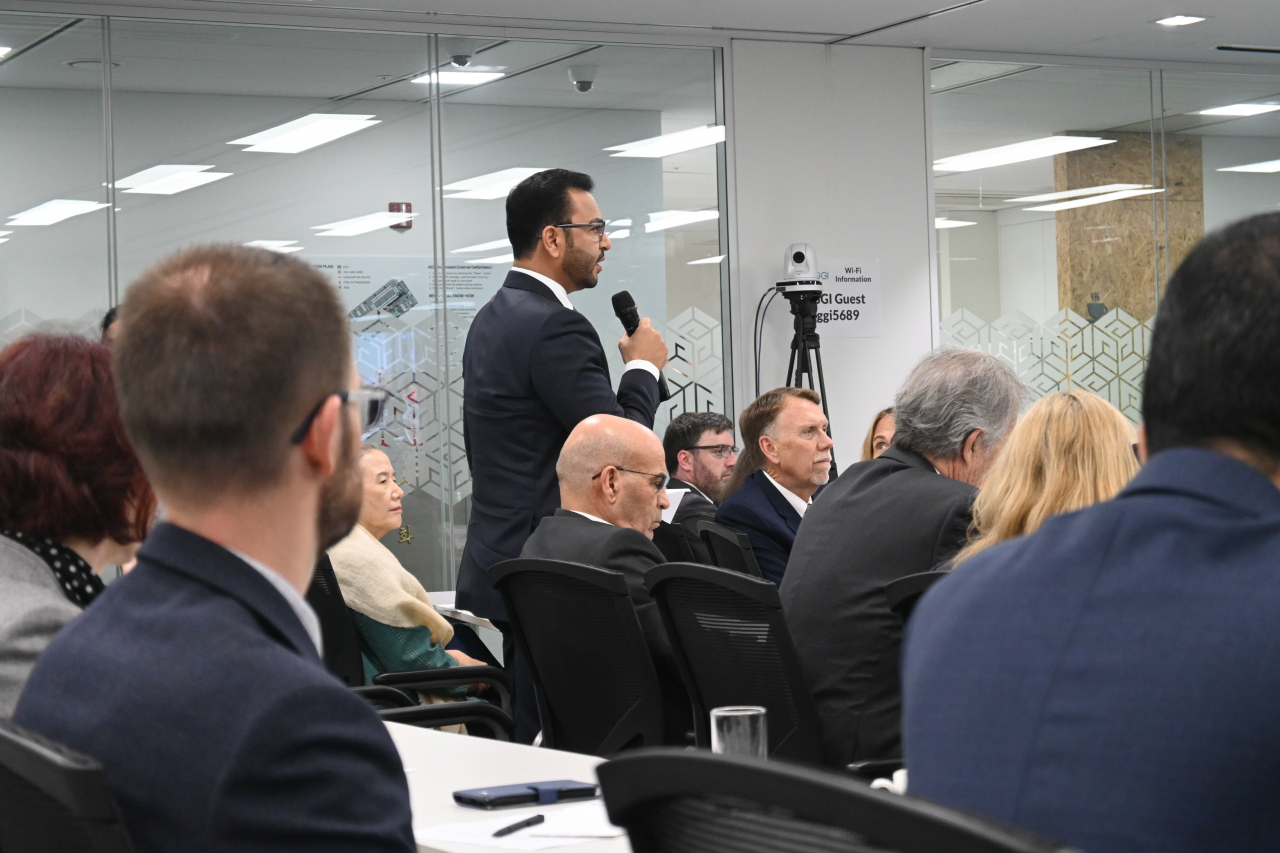
Meanwhile, Emirati Ambassador to Korea Abdulla Saif Al Nuaimi highlighted the UAE’s commitment to net zero by 2050 and its pioneering role as the first Middle Eastern country to host COP28.
"The UAE is about to ... demonstrate (that) economic growth and environmental stewardship can go hand in hand," said Al Nuaimi, welcoming high-ranking COP28 attendees.
"Together, let us shape a future that harmonizes nature, people and progress," the Emirati envoy urged.
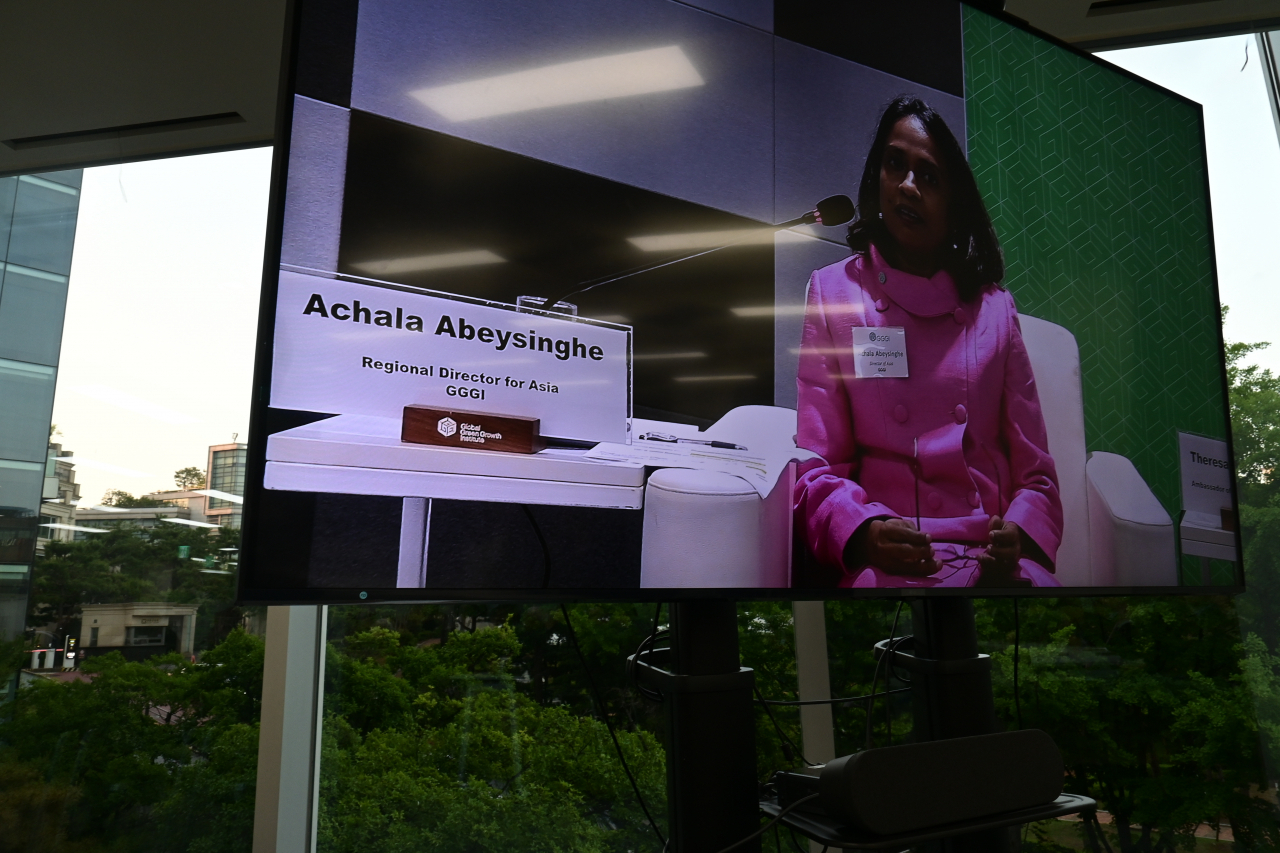
"Asia is not a stranger to technological innovation," said Achala Abeysinghe, GGGI’s director and head of programs for Asia, asking for countries in the region to lead technological innovation in green hydrogen, battery storage and other key areas.
Abeysinghe also pointed to net job gains in renewable energy, contrasted with significant job losses and early retirements in the mining and supply sectors.
"We have to think about those people," she said, advocating for cohesive social protection laws and policies on vocational training support for early retirees.







![[KH Explains] How should Korea adjust its trade defenses against Chinese EVs?](http://res.heraldm.com/phpwas/restmb_idxmake.php?idx=644&simg=/content/image/2024/04/15/20240415050562_0.jpg&u=20240415144419)











![[Today’s K-pop] Stray Kids to return soon: report](http://res.heraldm.com/phpwas/restmb_idxmake.php?idx=642&simg=/content/image/2024/04/16/20240416050713_0.jpg&u=)